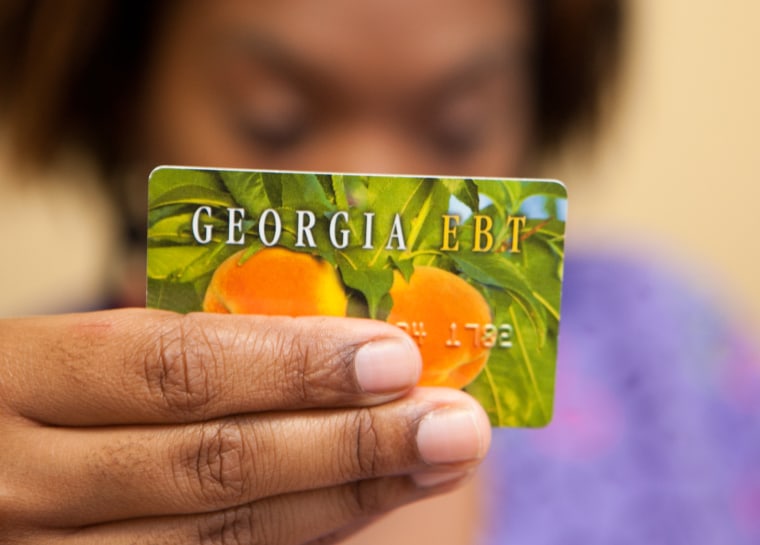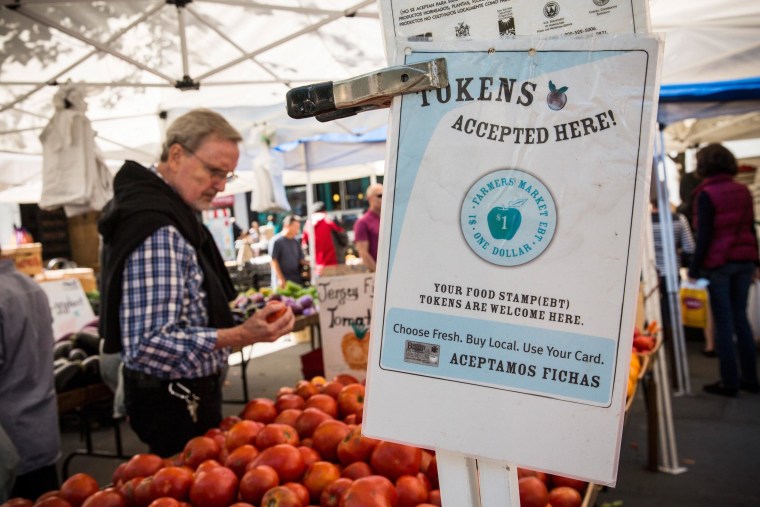/ Source: CNBC.com
As the lingering impact of the Great Recession slowly recedes, so are the numbers of American families who rely on government help to put food on the table.
After a surge in 2008, government spending on the Supplemental Nutrition Assistance Program, or SNAP, has peaked and begun falling, according to an analysis by the research institute Center on Budget Policy and Priorities. So have the number of participants collecting SNAP benefits, known popularly as food stamps.

